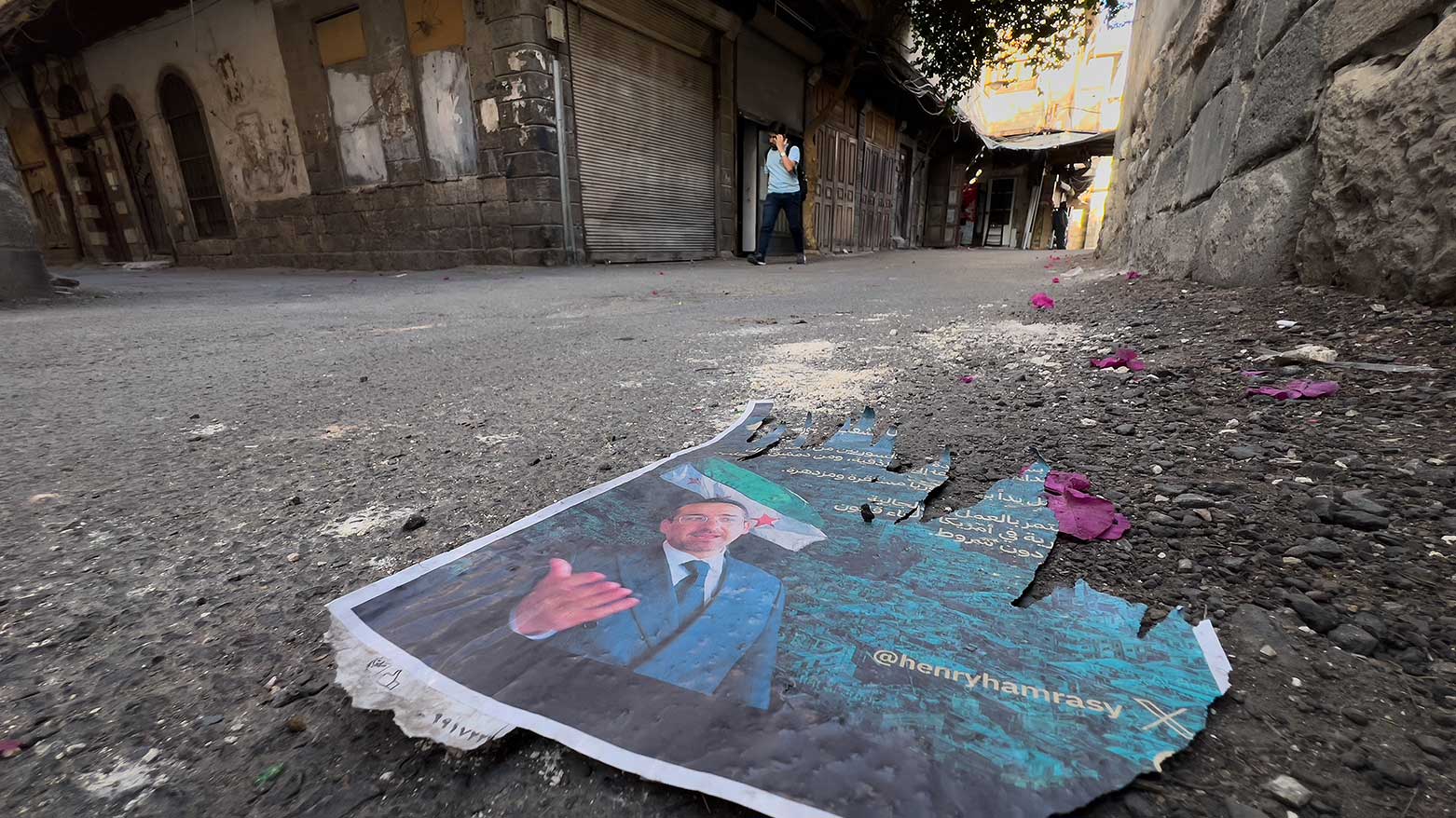A Parliament Without Voters: Silence and Skepticism Across Damascus
The silence on Damascus’ streets speaks louder than any campaign slogan: a nation waiting, cautiously and skeptically, to see if this new beginning will bring genuine change or simply a reshuffled version of the old order.

ERBIL (Kurdistan24) — The streets of Damascus were quiet on Saturday, just one day before Syria’s first parliamentary election since the ouster of former President Bashar al-Assad — a historic moment that, for many Syrians, passed almost unnoticed.
There were no campaign rallies, no colorful posters hanging from the city’s main squares, and no visible excitement. In fact, many residents seemed unaware that a vote was even taking place.
“I didn’t know — now by chance I found out that there are elections of the People’s Assembly,” Elias al-Qudsi, a shopkeeper in the old city’s Jewish Quarter, told AP. “But I don’t know if we are supposed to vote or who is voting.”
The only hints of an election were a few scattered posters, including those of Henry Hamra, a Jewish former resident of the quarter who emigrated to the United States years ago and returned after Assad’s downfall.
His surprise candidacy — symbolically bridging Syria’s fractured past and uncertain future — gained attention online but little resonance among ordinary Syrians.
Unlike in previous decades, when Assad’s Ba’ath Party tightly controlled the process, this election offers no direct participation by the public. Instead, two-thirds of the new People’s Assembly will be selected by electoral colleges, while the remaining seats will be appointed by interim President Ahmad al-Sharaa — a political figure installed after Assad’s regime collapsed in a lightning insurgent offensive last December.
“The ideal of direct parliamentary elections is simply not feasible at this stage,” Nawar Nejmeh, spokesperson for the national election committee, told AP. “Millions of Syrians were displaced, and many lost their identification papers during the war. We had to find a practical solution to avoid a legislative vacuum.”
He acknowledged the process was “not perfect, but the most realistic for now.”
Despite official assurances, the election has sparked skepticism among former opposition figures and activists who accuse the interim authorities of failing to ensure transparency and inclusivity.
Mutasem Syoufi, executive director of The Day After, an organization that supports Syria’s democratic transition, told AP that his group trained electoral college members but was barred from deploying independent monitors.
“The commission refused our proposal for observers,” he said, warning that last-minute changes to voting rosters and limited campaign periods have undermined the process.
Syoufi also pointed to broader structural flaws. “Are we going through a credible transition, an inclusive transition that represents all of Syria? I think we’re not there yet,” he said. “We must take serious and brave steps to correct the mistakes of the last nine months.”
The interim government faces immense challenges: rebuilding a country shattered by 13 years of war, managing restive militias, and restoring basic services.
Outbreaks of sectarian violence continue to rattle confidence in the fragile post-Assad order, particularly among minority communities who fear marginalization.
For ordinary citizens, however, the election feels distant from their daily struggles. Damascus residents are more preoccupied with power outages, economic collapse, and soaring prices than with parliamentary politics.
“We have no problem with how they are elected,” al-Qudsi said. “What matters is that they work for the people and the country.”
Nearby, father of six Shadi Shams shared the same weary pragmatism. “In Assad’s time, voting didn’t matter — the results were known. Maybe now things will be different,” he told AP. “But we can’t judge until after the elections, when we see what really changes.”
Sunday’s vote marks a turning point for Syria’s uncertain political future — a test not only of the interim government’s ability to organize credible institutions, but also of whether war-weary Syrians still believe in the possibility of national renewal.
For now, the silence on Damascus’ streets speaks louder than any campaign slogan: a nation waiting, cautiously and skeptically, to see if this new beginning will bring genuine change or simply a reshuffled version of the old order.